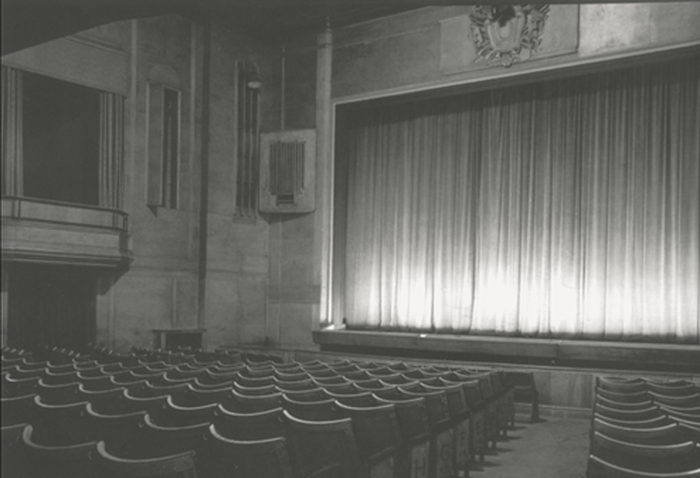‘Translations’ brings the Irish language struggle to life
This captivating adaption speaks to the personal strife of Irish colonisation in the 1800s

It is 1833. Set against the British military occupation of Ireland, British soldiers are imposing the English language on a small Irish-speaking town Baile Beag, in part through anglicising Gaelic place names. Is this, as locally-raised bilingual Owen says, merely about “a six-inch map”? Or as the British soldier Lieutenant Yolland acknowledges, is there something deeper “being eroded”?
Written originally in 1980 by Irish playwright Brian Friel and considered a modern classic, Translations is a beautiful exploration of the role language plays in our society, relevant to the wider social context not only of the specific period but also our contemporary times. The direction and the actors’ performances retained the plays’ capacity to convey this, making it a compelling watch. The play gives due space for its characters to express their complexities, allowing their humanity to relate to the audience.
“The play offers a reminder of the shades of grey that define us all”
Both Owen and his brother, Manus, are bilingual. While the latter refuses to speak English due to his resentment of British colonisation, Owen used his ability to communicate in English to his advantage, running a lucrative business in Dublin and returning as an interpreter for British soldiers, Captain Lancey and Lieutenant Yolland. Despite their contrasting choices, there is no indication of either being villainised or lauded.
Owen’s constant minimising of the intensity of British actions and behaviour can be frustrating - seen in Manus’ disappointing and perplexed demeanour when Owen euphemistically calls the imposition of anglicised place names a matter of ‘correction’ or ‘standardisation’. However his realisation of what is at stake occurs later in the play, and Owen’s acknowledgement of having misjudged the situation is portrayed with such profound sincerity that one cannot help but respond to him with empathy.
“Translations gives a nuanced account of culture, identity, and language that is likely to stay with the audience”
This moral greyness is similarly depicted brilliantly in Lieutenant Yolland’s character. The script and performance endear Yolland to the audience, from him desperately considering learning Irish and moving to Baile Beag after being infatuated with local woman Maire, to him insisting on hearing Maire speak despite not being able to make sense of her words. These moments are subordinated to the wider context, perhaps reminding the audience of the broader social dynamics at play. The play seems to take a clear moral stand against cultural imposition, but in humanising all its characters and making one empathise with them, it seems to offer a reminder of the shades of grey that define us all.
The script is also replete with impactful subtleties, such as in its unstated commentary dealing with the question: to whom does a language really belong? Owen’s bilingualism allows him to assimilate with the British. Yet, when Yolland asks him to recite place names in Gaelic, he asks Owen to do so in “his language”, implying that English was not really Owen’s. The cruel irony of the situation is not lost: imperialism imposes certain cultural aspects, compelling people to abandon their original ones to make the new aspects theirs. Yet, when they manage to do so, those aspects are still perceived as being alien to them.
Certain attempts at comedic relief seemed out-of-place and unnecessary, such as those dealing with the characterisation of a young Irish boy - Doalty - as being academically inept (is not knowing what seven times nine is really that funny?). Nonetheless, such moments are rare and don’t take away from what the play does well: offer a nuanced account of culture, identity, and language that is likely to stay with the audience for a while. Translations offers a deep exploration of characters and performances, and the script’s subtleties make the play more than worth your time.
Translations is showing at the ADC theatre 18th - 22nd of April, 7.45pm
 News / Deborah Prentice overtaken as highest-paid Russell Group VC2 February 2026
News / Deborah Prentice overtaken as highest-paid Russell Group VC2 February 2026 News / Christ’s announces toned-down ‘soirée’ in place of May Ball3 February 2026
News / Christ’s announces toned-down ‘soirée’ in place of May Ball3 February 2026 Fashion / A guide to Cambridge’s second-hand scene2 February 2026
Fashion / A guide to Cambridge’s second-hand scene2 February 2026 News / Downing Bar dodges college takeover31 January 2026
News / Downing Bar dodges college takeover31 January 2026 Comment / Men at Cambridge are experiencing equality2 February 2026
Comment / Men at Cambridge are experiencing equality2 February 2026










